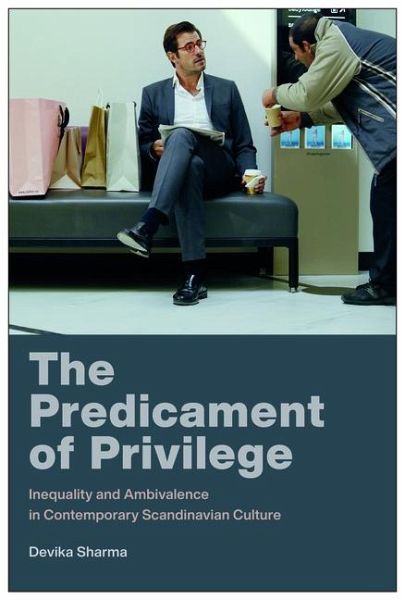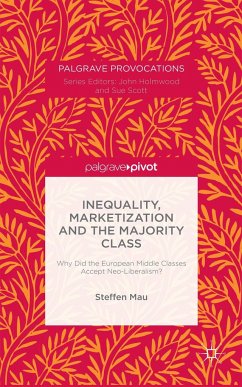
The Predicament of Privilege
Inequality and Ambivalence in Contemporary Scandinavian Culture
Versandkostenfrei!
Erscheint vorauss. 24. Februar 2026
102,99 €
inkl. MwSt.
Weitere Ausgaben:
Is privilege a problem? Scandinavians ask, Is this okay?—and wrestle with the answer A twenty-first century paradox has emerged in contemporary Scandinavian societies: the region's deeply ingrained egalitarian ideals exist uneasily alongside its undeniable global privilege. In The Predicament of Privilege , Devika Sharma examines this tension, exploring how a well-intentioned desire to "do good" collides with an unsettling realization: the very structures that enable ethical consumption, charitable donations, and humanitarian action are themselves embedded in a system of exploitation. Throug...
Is privilege a problem? Scandinavians ask, Is this okay?—and wrestle with the answer A twenty-first century paradox has emerged in contemporary Scandinavian societies: the region's deeply ingrained egalitarian ideals exist uneasily alongside its undeniable global privilege. In The Predicament of Privilege , Devika Sharma examines this tension, exploring how a well-intentioned desire to "do good" collides with an unsettling realization: the very structures that enable ethical consumption, charitable donations, and humanitarian action are themselves embedded in a system of exploitation. Through an incisive analysis of contemporary Scandinavian cultural texts, The Predicament of Privilege introduces the concept of skeptimentality—a pervasive moral ambivalence about virtuous emotions like compassion and generosity. As Sharma demonstrates, this sentiment does not necessarily lead to action but creates a vacuum, leaving privilege-sensitive publics with a crisis of conscience but no clear path forward. Sharma's book challenges both the self-image of Nordic societies and the broader assumptions of humanitarian ethics. A necessary read for scholars, cultural critics, and anyone engaging with the politics of privilege, this book offers a bold new perspective on the unfinished business of equality.













